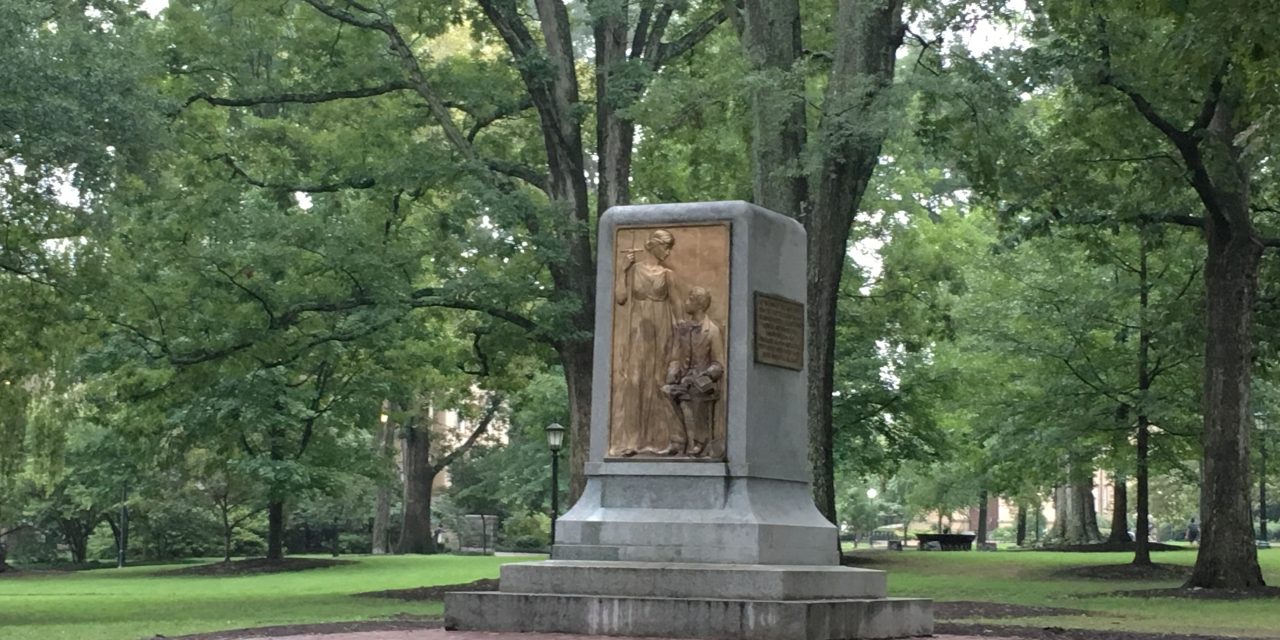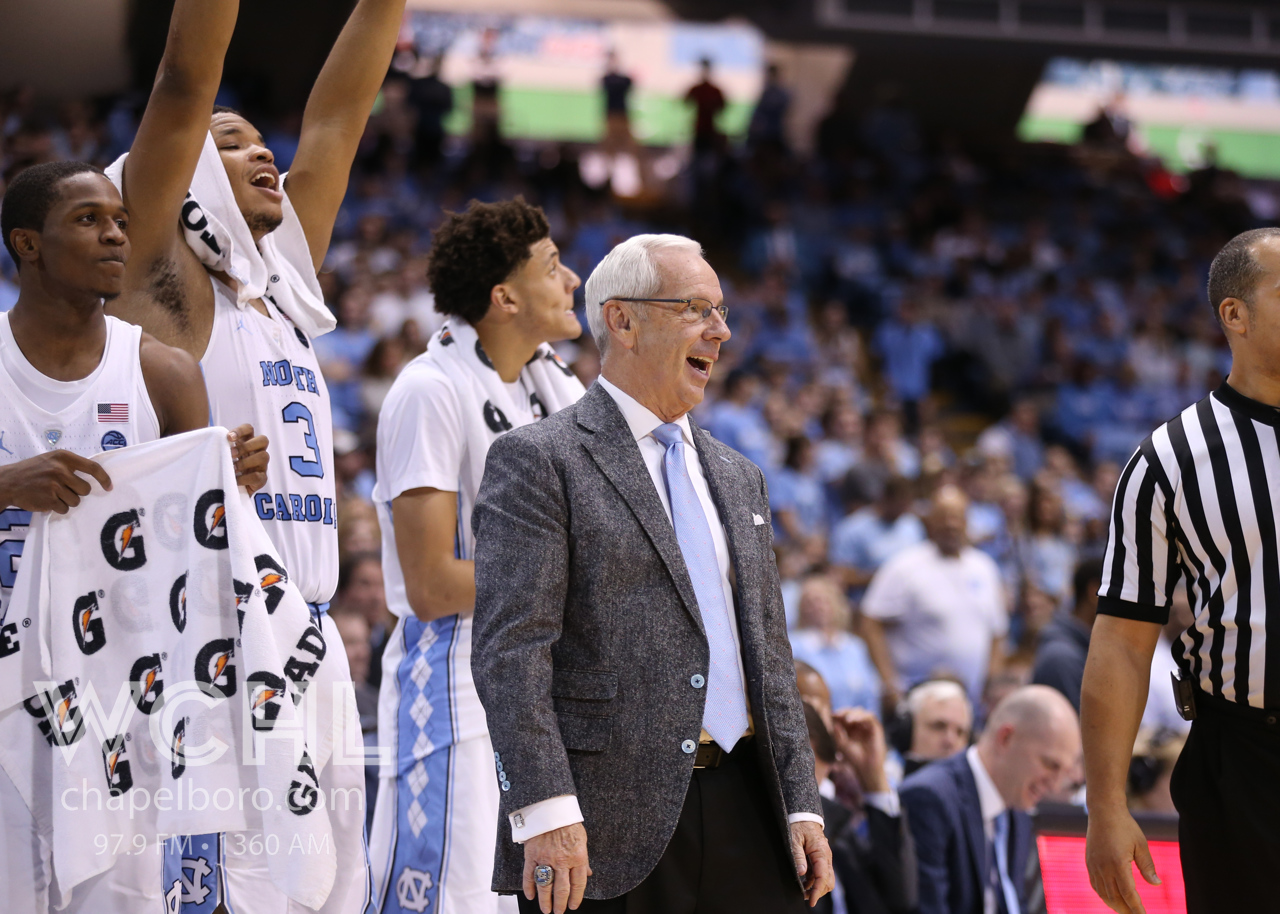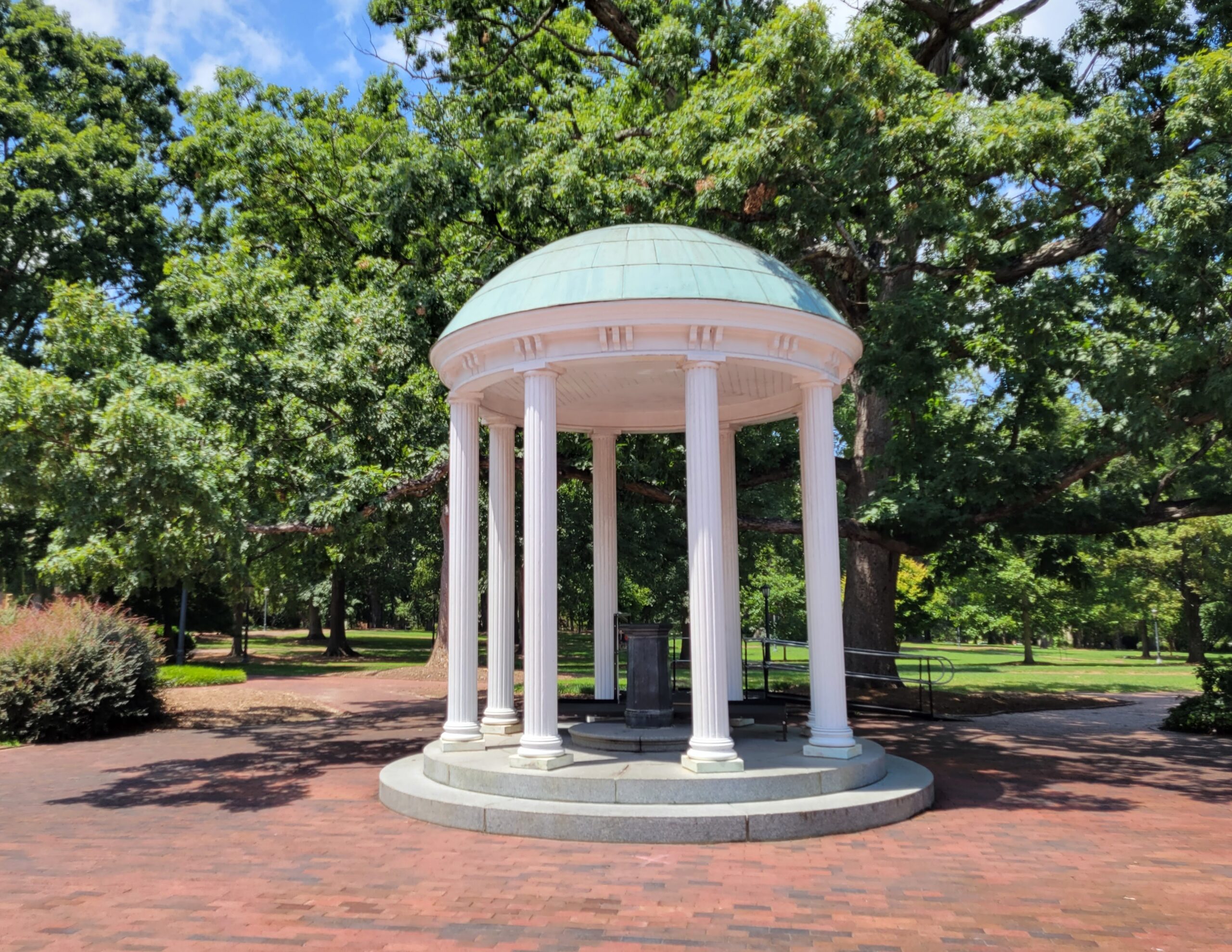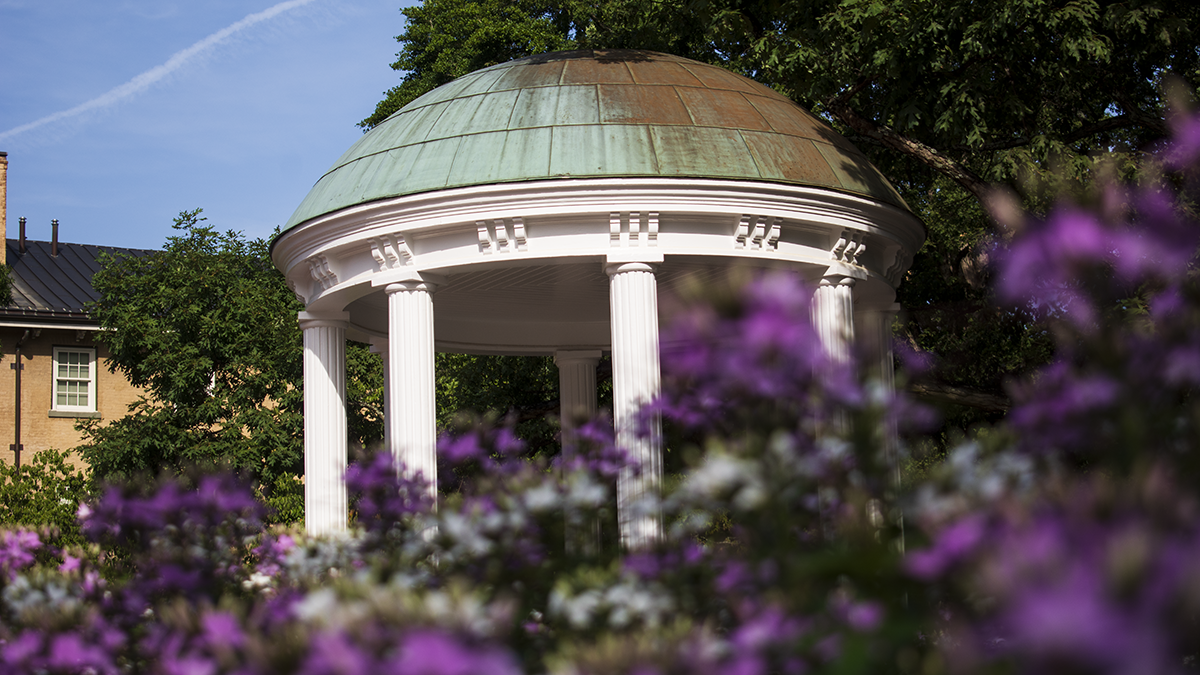Last week, UNC-Chapel Hill announced that the Confederate monument known as Silent Sam would be returning to campus.
A plan proposed by Chancellor Carol Folt and the UNC Board of Trustees calls for the statue to be placed in a new $5.3 million facility, which will house classrooms and technology as a means of telling the “true story” of the university.
This proposal was not well received by members of the local community and former athletes who played at North Carolina.
Harrison Barnes, who played at UNC from 2010 to 2012, shared a post on his personal Twitter account in which the UNC Black Faculty call for the university to permanently remove Silent Sam from campus.
Standing with the students and faculty ✊🏾 https://t.co/psUI5NhVnG
— Harrison Barnes (@hbarnes) December 9, 2018
Dr. Deborah Stroman joined the Aaron Keck show last week to discuss the connection between Silent Sam and UNC athletics and why many former athletes are speaking out against the university.
“In particular,” Stroman said, “I’m talking about the athletes who have expressed dismay, hurt, pain and that’s coming forth through the black student movement, which is the black student group on campus.”
Stroman cited a recent study conducted by Dr. Shaun Harper at the University of Southern California that states that UNC has graduated black male student-athletes at one of the lowest rate among universities across the nation.
“When you couple Silent Sam and that, the way it’s perceived to the students of color, in particular African Americans, plus the poor graduation rates of the black male athletes, we’ve got a major stain on UNC.”
Stroman says that in many ways, student-athletes at UNC are restricted from speaking out about Silent Sam and other issues on campus.
However, the decision to bring Mack Brown back to North Carolina as head football coach draws parallels with a similar issue that the university had in 1992.
At that time, football players joined other students in protests in support of the Black Cultural Center. The center had previously been housed in the student union but outgrew its space and and needed a new building.
“I go back to 1992 when the Sanya Haynes Stone Center was being considered, Mack Brown was the head coach at the time when the football players decided to protest,” Stroman said. “And Mack Brown is quoted as saying that he has no problem with his football players leading a protest as long as they can play the game, as long as it doesn’t interfere.”
A new building was later approved by the Board of Trustees and the Sonja Hayes Stone Center for Black Culture and History was opened in 2004.
For both the football and basketball programs, recruiting is the lifeblood that keeps those teams going. But Stroman mentioned that some parents have concerns about sending their children to UNC.
“I’ve heard it from people who are in the athletic space, as in coaches at high schools and parents who stated that UNC more and more is becoming a place where you don’t want to send your child if you’re African American.”
At least for now, the new football staff at UNC appears to have no trouble recruiting. Mack Brown and his staff, which has yet to be completed, secured commitments from six recruits over the weekend, one of which was a blue-chip recruit.
Stroman said that she is thankful for the local community rallying around these issues.
“I’m glad to see different folks in different organizations paying attention and trying to share their voice whether you agree or disagree. I think that’s really helpful, but also to let the students know that you’re not alone more so than ever.”







Did you ever consider that the athletes went pro early? What about the ones who come back and graduate?
I’m surprised you found a unc athlete that could spell Silent Sam.